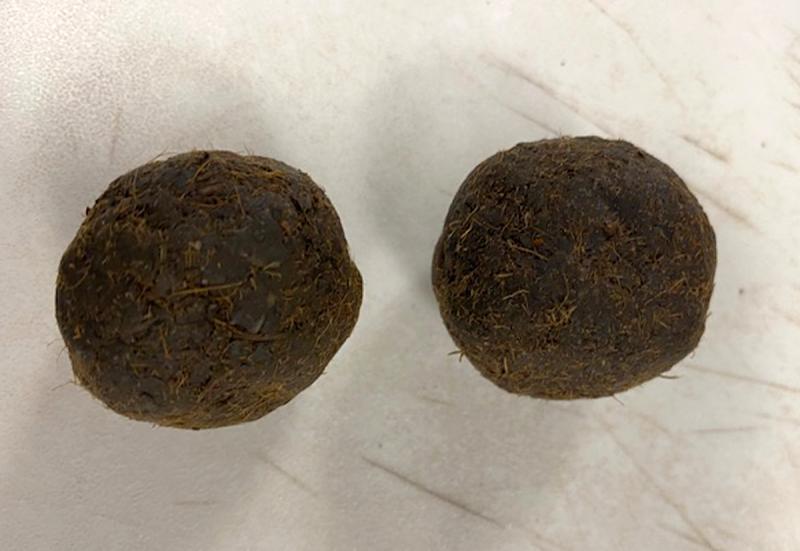STERLING, Va. – U.S. Customs and Border Protection agriculture specialists discovered cow dung cakes while examining leftover baggage recently at Washington Dulles International Airport.
That is not a typo. CBP agriculture specialists found two cow dung cakes in a suitcase that was left behind after passengers from an Air India flight cleared CBP’s inspection station on April 4.

highly contagious foot and mouth disease.
Cow dung is reported to be a vital energy and cooking source in some parts of the world. Cow dung has also been reportedly used as a skin detoxifier, an antimicrobial, and as a fertilizer. Despite these alleged benefits, cow dung from India is prohibited due to the potential introduction of Foot and Mouth disease.
According to the U.S. Department of Agriculture, Foot and Mouth Disease (FMD) is a worldwide concern as it can spread widely and rapidly and causes significant economic losses to livestock populations. A single detection of FMD will likely stop international livestock trade completely until authorities can eradicate the disease threat. The United States has been FMD free since 1929.
“Foot and Mouth Disease is one of the animal diseases that livestock owners dread most, has grave economic consequences, and it is a critical threat focus of Customs and Border Protection’s agriculture protection mission,” said Keith Fleming, Acting Director of Field Operations for CBP’s Baltimore Field Office. “CBP’s agriculture specialists are our nation’s frontline protectors of vital agricultural and natural resources that help keep our nation’s economy strong and robust.”
The cow dung cakes were destroyed.
CBP agriculture specialists are charged with the challenging task of safeguarding our nation’s agricultural resources by examining international trade shipments and traveler baggage every day for invasive insects, federal noxious weeds, and plant and animal diseases. They have extensive training and experience in the biological sciences and agricultural inspection.
During a typical day last year, CBP agriculture specialists across the nation seized 3,091 prohibited plant, meat, animal byproducts, and soil, and intercepted 250 insect pests at U.S. ports of entry. Learn more about what CBP accomplished during “A Typical Day” in 2020.
Visit CBP Ports of Entry to learn more about how CBP’s Office of Field Operations secures our nation’s borders. Learn more about CBP at www.CBP.gov.
Follow the Director of CBP’s Baltimore Field Office on Twitter at @DFOBaltimore and on Instagram at @dfobaltimore for breaking news, current events, human-interest stories and photos.


